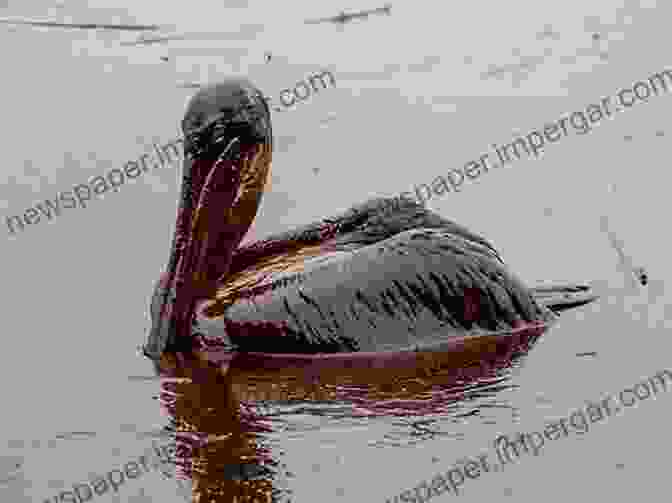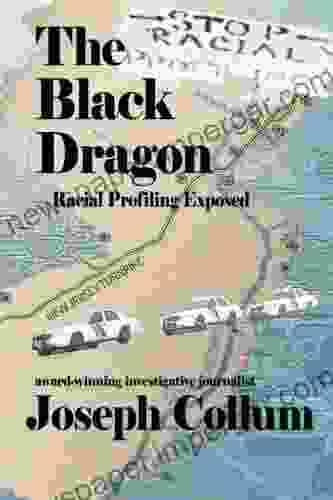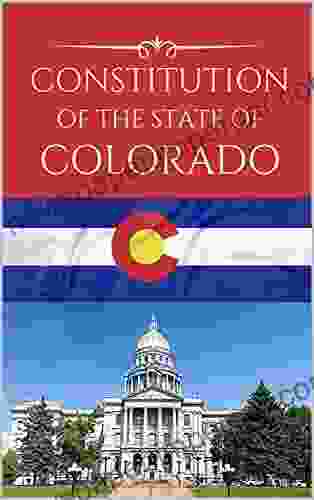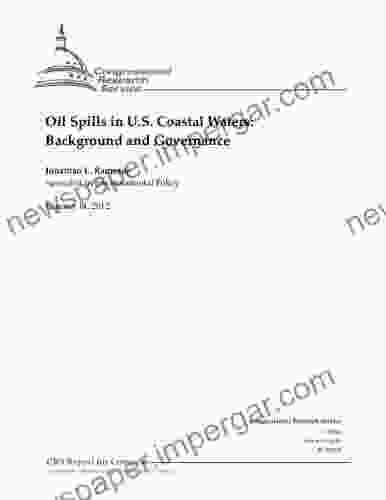Oil Spills in Coastal Waters: Unveiling the Devastating Impacts and the Path to Prevention

5 out of 5
| Language | : | English |
| File size | : | 158 KB |
| Text-to-Speech | : | Enabled |
| Screen Reader | : | Supported |
| Enhanced typesetting | : | Enabled |
| Print length | : | 37 pages |
| Lending | : | Enabled |
The vast expanses of coastal waters, teeming with life and supporting vibrant ecosystems, are constantly under threat from the lurking danger of oil spills. These catastrophic events, whether caused by human error or natural disasters, unleash a torrent of toxic substances into the marine environment, triggering a chain reaction of devastating consequences that extend far beyond the immediate spill site. This article delves into the profound and multifaceted impacts of oil spills on coastal waters, exploring their long-term effects on wildlife, ecosystems, and human communities, while highlighting the crucial importance of prevention strategies and proactive measures to safeguard our oceans.
Ecological Devastation: A Cascade of Impacts
Oil spills wreak havoc on marine ecosystems, disrupting the delicate balance of life forms and their intricate relationships. The toxic hydrocarbons present in oil can directly harm or kill marine organisms, affecting their survival, growth, and reproduction. Phytoplankton, the microscopic algae that form the foundation of the marine food chain, are particularly vulnerable to oil contamination, leading to a decline in their populations and a cascading effect on higher trophic levels. Zooplankton, small animals that feed on phytoplankton, suffer similar impacts, further reducing the available food sources for fish, seabirds, and marine mammals.
Oil spills also pose a grave threat to coastal habitats, including coral reefs, mangroves, and salt marshes. These ecosystems provide critical nursery grounds, shelter, and feeding areas for numerous marine species, and their contamination can lead to long-term degradation and loss of biodiversity. Coral reefs, renowned for their exquisite beauty and ecological significance, are especially susceptible to oil damage, as the toxic compounds disrupt their delicate symbiotic relationships with algae and impair their growth and reproduction.

Wildlife Mortality and Population Decline
Oil spills inflict severe consequences on marine wildlife, leading to widespread mortality and population decline. Birds, sea turtles, and marine mammals are particularly vulnerable to oil contamination due to their close association with surface waters and their reliance on marine resources for survival. Birds, with their highly absorbent feathers, become coated in oil, impairing their ability to fly, hunt, and maintain their body temperature, often leading to hypothermia and death. Sea turtles, known for their longevity and slow reproductive rates, face similar challenges, as oil ingestion and external contamination can cause organ damage, reproductive impairment, and reduced immune function.
Marine mammals, including whales, dolphins, and seals, are also severely affected by oil spills. The toxic compounds can disrupt their hormone systems, impair their reproductive success, and damage their respiratory and digestive tracts. The long-term effects of oil contamination on marine mammals are still being studied, but preliminary research suggests that these animals may suffer from reduced survival rates, increased disease susceptibility, and impaired cognitive and behavioral functions.
Economic Impacts: A Ripple Effect on Coastal Communities
The consequences of oil spills extend beyond the immediate environmental impacts, reaching into the socioeconomic realm of coastal communities. The disruption of marine ecosystems and wildlife populations can have profound effects on tourism, fishing, and other industries that rely on the health of coastal waters. The closure of beaches, restrictions on fishing activities, and the contamination of seafood can lead to substantial economic losses for local businesses and communities.
The tourism industry, a major economic driver in many coastal areas, is particularly vulnerable to oil spills. The unsightly presence of oil on beaches and in the ocean can deter tourists, leading to a decline in visitor numbers and a loss of revenue for hotels, restaurants, and other tourism-related businesses. Similarly, the fishing industry, which provides sustenance and livelihoods for many coastal communities, can be severely affected by oil spills, as contaminated seafood poses a health risk and can disrupt market demand.
Prevention and Mitigation: A Proactive Approach
Given the devastating impacts of oil spills, it is imperative to prioritize prevention strategies and invest in technologies and practices that minimize the risk of these catastrophic events. Enhanced monitoring of oil transportation, rigorous safety standards for offshore drilling operations, and the deployment of advanced spill response systems are crucial steps towards reducing the likelihood of oil spills and mitigating their potential damage.
International collaboration and the sharing of best practices are also essential in preventing oil spills and coordinating effective response efforts. International organizations, such as the International Maritime Organization (IMO),play a vital role in setting standards, promoting cooperation, and facilitating the transfer of knowledge and technology between nations.
Remediation and Restoration: Addressing the Aftermath
In the aftermath of an oil spill, swift and effective remediation and restoration efforts are crucial to minimize the long-term ecological and economic impacts. Oil spill response teams work tirelessly to contain the spill, remove oil from the water and shorelines, and mitigate the damage to wildlife and habitats.
Remediation techniques include the use of dispersants, which break down oil into smaller droplets, and sorbents, which absorb oil from the water. Shoreline cleanup involves manual removal of oil from beaches and rocky shores, while oiled wildlife is rescued and rehabilitated to maximize their chances of survival.
Restoration efforts focus on restoring damaged habitats and supporting the recovery of wildlife populations. This can involve planting new vegetation, creating artificial reefs, and implementing long-term monitoring programs to track the progress of recovery.
: Protecting Our Oceans from the Scourge of Oil Spills
Oil spills pose a grave threat to the health of coastal waters, ecosystems, wildlife, and human communities. Their long-term impacts can be devastating, affecting everything from marine biodiversity to local economies. It is imperative that we prioritize prevention strategies, invest in spill response capabilities, and support efforts to remediate and restore affected areas. By working together, we can safeguard our oceans from the scourge of oil spills and ensure a sustainable future for marine ecosystems and generations to come.
5 out of 5
| Language | : | English |
| File size | : | 158 KB |
| Text-to-Speech | : | Enabled |
| Screen Reader | : | Supported |
| Enhanced typesetting | : | Enabled |
| Print length | : | 37 pages |
| Lending | : | Enabled |
Do you want to contribute by writing guest posts on this blog?
Please contact us and send us a resume of previous articles that you have written.
 Book
Book Novel
Novel Page
Page Chapter
Chapter Text
Text Story
Story Genre
Genre Reader
Reader Library
Library Paperback
Paperback E-book
E-book Magazine
Magazine Newspaper
Newspaper Paragraph
Paragraph Sentence
Sentence Bookmark
Bookmark Shelf
Shelf Glossary
Glossary Bibliography
Bibliography Foreword
Foreword Preface
Preface Synopsis
Synopsis Annotation
Annotation Footnote
Footnote Manuscript
Manuscript Scroll
Scroll Codex
Codex Tome
Tome Bestseller
Bestseller Classics
Classics Library card
Library card Narrative
Narrative Biography
Biography Autobiography
Autobiography Memoir
Memoir Reference
Reference Encyclopedia
Encyclopedia Jon Reiss
Jon Reiss John Walter
John Walter Jonathan Biddle
Jonathan Biddle Jon Ronson
Jon Ronson Jonathan Seaman
Jonathan Seaman John R Farella
John R Farella Joseph J Foy
Joseph J Foy John J Shea
John J Shea Jonathan M Borkum
Jonathan M Borkum Jolie Demarco
Jolie Demarco John Woolman
John Woolman John Smith
John Smith Joseph Edwards
Joseph Edwards Joseph F Kelly
Joseph F Kelly John Hines
John Hines Joseph S Renzulli
Joseph S Renzulli John R Bruning
John R Bruning Joseph Salama
Joseph Salama John J Mcdermott
John J Mcdermott John E Hess
John E Hess
Light bulbAdvertise smarter! Our strategic ad space ensures maximum exposure. Reserve your spot today!

 William ShakespeareUnlock the Secrets of Beer: An Indulgent Journey with "Drink Beer Think Beer"
William ShakespeareUnlock the Secrets of Beer: An Indulgent Journey with "Drink Beer Think Beer"
 Ibrahim BlairThe Chilling Story of Mother Multiple Murder and SIDS: A Must-Read for True...
Ibrahim BlairThe Chilling Story of Mother Multiple Murder and SIDS: A Must-Read for True...
 Melvin BlairSacred Calling, Secular Accountability: A Journey of Faith and Social Justice
Melvin BlairSacred Calling, Secular Accountability: A Journey of Faith and Social Justice
 Jermaine PowellUnveiling the Unjust: "The Black Dragon Racial Profiling Exposed" Exposes the...
Jermaine PowellUnveiling the Unjust: "The Black Dragon Racial Profiling Exposed" Exposes the... Julian PowellFollow ·8.2k
Julian PowellFollow ·8.2k Frank ButlerFollow ·6.3k
Frank ButlerFollow ·6.3k Neil ParkerFollow ·3.5k
Neil ParkerFollow ·3.5k Isaiah PowellFollow ·16.6k
Isaiah PowellFollow ·16.6k Vernon BlairFollow ·11.2k
Vernon BlairFollow ·11.2k David PetersonFollow ·2.6k
David PetersonFollow ·2.6k Clark BellFollow ·3.4k
Clark BellFollow ·3.4k Samuel BeckettFollow ·9.4k
Samuel BeckettFollow ·9.4k

 Jake Powell
Jake PowellThe Constitution of the State of Colorado: A Legacy of...
Since its adoption in 1876, the...

 Devin Ross
Devin RossFrom Plato to Plantinga: A Journey Through the History of...
Philosophy is the study of...

 Robin Powell
Robin PowellWords That Hurt, Words That Heal: The Power of Language...
Words are powerful. They can...

 T.S. Eliot
T.S. EliotTantalize Your Taste Buds with Over 90 Low-Carb Ethnic...
Indulge in a Culinary Adventure with "Over...
5 out of 5
| Language | : | English |
| File size | : | 158 KB |
| Text-to-Speech | : | Enabled |
| Screen Reader | : | Supported |
| Enhanced typesetting | : | Enabled |
| Print length | : | 37 pages |
| Lending | : | Enabled |








